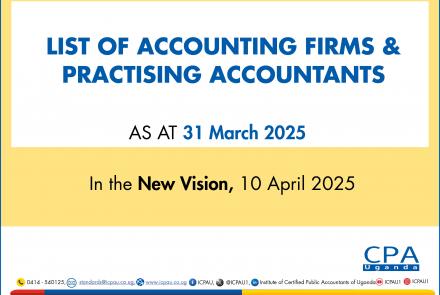By Abraham Malinga
On Thursday, November 21, MAT Abacus hosted the third-quarter session of its CFO Leadership Academy at Fairway Hotel. The event brought together professionals to discuss a timely and crucial topic: managing inter-generational and inter-cultural teams in the modern workplace.
The session, facilitated by Mr. Paul Patrick Ikopit, Country Director for Onafriq Uganda—a South African fintech payment platform—focused on the challenges and opportunities of working with diverse teams. Mr. Ikopit emphasized the importance of identifying generational gaps that often hinder communication and teamwork. He pointed out that these differences stem from varying expectations around management styles, feedback, promotions, benefits, and conflict resolution.
“Understanding what makes each generation tick is paramount,” Mr. Ikopit explained. He highlighted how generational differences shape workplace dynamics and suggested actionable strategies for overcoming these challenges. Recognizing and valuing the unique attributes of each generation is crucial, he noted, as is adjusting hiring practices, management approaches, and company cultures to accommodate and leverage these differences.
Successful organizations, he observed, tend to take specific steps to bridge these gaps. They align their workforce with their customer base, establish intergenerational councils and boards, monitor employee demographics to inform policies, and implement mentoring programs to foster knowledge sharing. They also prioritize continuous learning opportunities, offer diverse benefits packages, adopt flexible schedules, and encourage lateral career movements. These efforts not only ease intergenerational tensions but also enhance organizational agility, decision-making, and overall performance.
Mr. Ikopit emphasized that the diverse perspectives and skills found within multi-generational teams help organizations stay competitive and responsive to shifting market demands. However, he acknowledged that managing such diversity comes with its challenges. Different life stages often mean varying priorities and professional goals; for instance, younger employees may focus on rapid career progression, while older colleagues might prioritize stability and work-life balance.
Preferences in work styles also vary. Some employees thrive on in-person interactions, while others prefer digital communication tools like video conferencing or instant messaging. Attitudes towards organizational culture, leadership, and work ethics can also differ significantly.
Mr. Ikopit stressed the importance of fostering an inclusive workplace where these differences are acknowledged and celebrated. “The key to success lies in creating an environment where every generation feels valued and empowered to contribute,” he concluded.
The session provided valuable insights for leaders navigating the complexities of today’s diverse workforce. By embracing these strategies, organizations can unlock the full potential of inter-generational and inter-cultural collaboration, driving innovation and ensuring long-term success.


